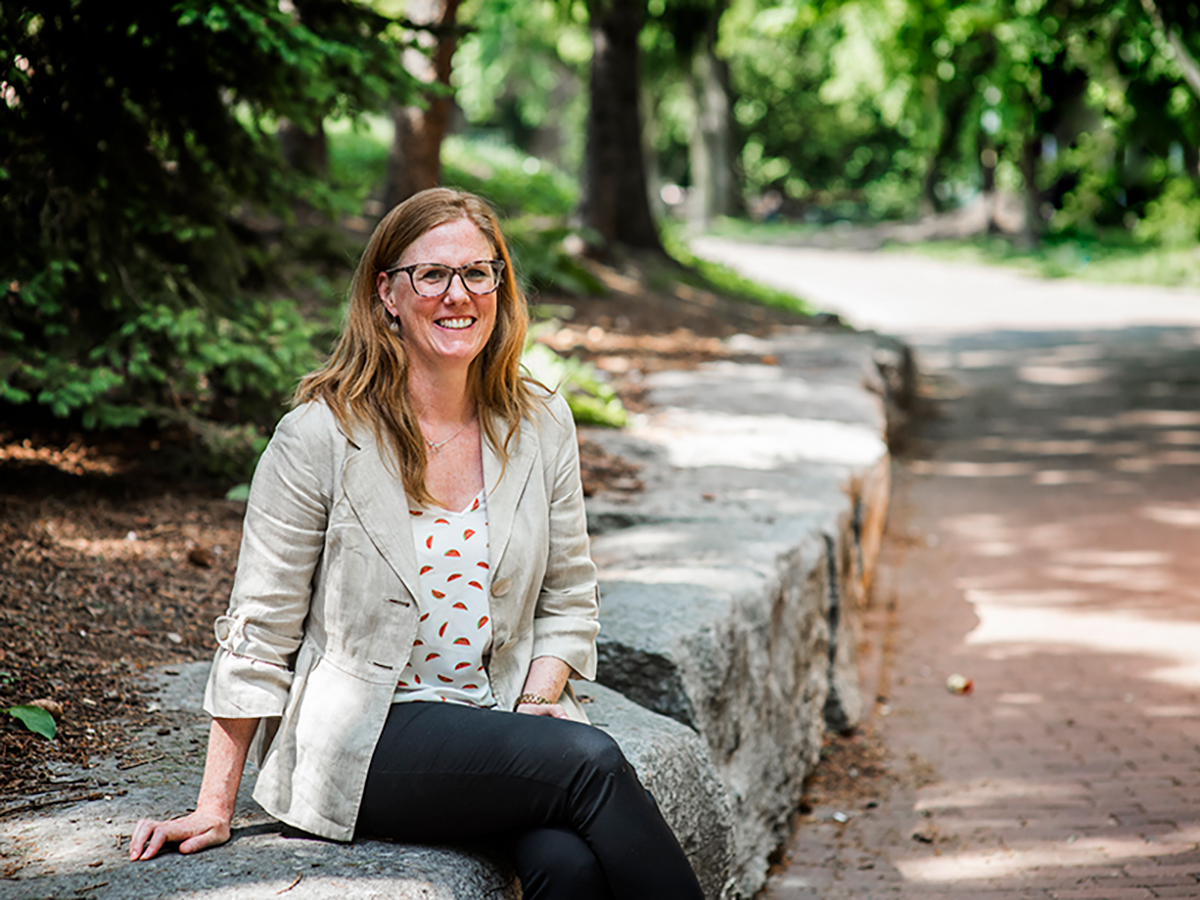Partnership Grant aims to inform discussion around childhood disability

Professor of Early Childhood Studies Kathryn Underwood is the Primary Investigator on a Partnership Grant studying institutional disability services.
Ryerson’s Faculty of Community Service’s Professor Kathryn Underwood is the lead on a $2.48 million Social Sciences and Humanities Research Council of Canada (SSHRC) Partnership Grant that will comprise 30 researchers and 16 partner organizations to examine the institutional response our society has to disability in early childhood, from the standpoint of families.
The project is an extension of her previously awarded Partnership Development Grant. Through that first grant, professor Underwood built a team in five communities across Ontario, including Wellington County, District of Timiskaming, Toronto, Hamilton, and Constance Lake First Nation to study family interactions with disabilities supports for children aged two to eight. With this just-awarded Partnership Grant, the research team will grow to include new partners across Canada in Brandon, MB; Comox Valley, BC; and Yellowknife, NWT. The team will interview 120 families, and gather data about their interactions with institutions that intend to serve their child with a disability, while following the children from the previous study as they age into the school system. The new study is expected to last six years.
“The team really is the foundation of this project. They have contributed to the thinking behind the study, the aims and goals of the study and are one of our most important knowledge mobilization strategies because we work with them as they develop their own policy and make their own decisions,” noted professor Underwood.
Using the approach of Institutional Ethnography, the team has studied institutional cultures and practices around disabilities. According to professor Underwood, the most telling outcome from the previous grant leading into this one is that the work of families, which involves building relationships, searching for information, coordinating and sharing of time and funds, is essential to the capacity for institutions to engage with disabled children.
“The system works because mothers work,” said professor Underwood, noting that while women are not the only caregivers who participate in care, her research has shown the work to be very “gendered,” with women taking on most of the responsibility.
The work that professor Underwood speaks of is the tireless effort that parents dedicate to acquire services for their children, often exhausting multiple avenues to find services that fit their families, both in a cultural sense, as well as in terms of the structure of services.
“What we are hearing from a lot of families is that they feel they are exceptions to the rule. They find accommodations outside the rules, and when you are always the exception to the rule, there is going to be a lot of work. The system is not designed for you,” she said. In addition, the services are designed with a medicalized approach to disability that seeks to normalize children.
The earlier Partnership Development Grant project also revealed a lack of culturally sensitive supports for families of children with disabilities in Indigenous communities and that the colonial approach to the services hindered access for many. While advising on the first study, the District of Timiskaming Elders’ Council noted that Indigenous peoples often feel they have to choose between disability-specific support and their own cultural values.
“We need to stop thinking about inclusive programs and start thinking about inclusive lives,” said professor Underwood, adding that cohesive approaches that look at children in their entirety, rather than the sum of their development, is needed to create systems that work for more children who have a positive sense of disability identity.
“What we have now is a very medicalized way of understanding disability,” she said. “The systems don’t recognize the complex interactions in their communities and the many relationships that they hold. What they do is they break children down into body parts, emotional responses, intellectual practices and try to fix them. And it is inconsistent with the messages of valuing diversity and ascribing to inclusion that we hear at all government levels.”
The ultimate goal of the Partnership Grant project is to inform policy and spark discussion around positive understanding of diversity in abilities through childhood and to ensure the rights of all children to education in a public system in Canada.
“Ryerson couldn’t be more pleased to see the results of a previous Partnership Development Grant grow into a larger, Canada-wide project set to improve the lives of young families who need support and greater understanding,” said Steven N. Liss, vice-president, research and innovation. “Professor Underwood’s team is a wonderful example of the type of interdisciplinary, community-facing, cross-cultural work that is championed here at Ryerson.”
The team is tracking progress and their publications on the Inclusive Early Childhood Service System website. (external link)
The funds for this grant are part of a $5.1 Million investment by SSHRC into research at Ryerson university.
The Partnership Development Grant and the Partnership Grant are funded by the Social Sciences and Humanities Research Council of Canada.